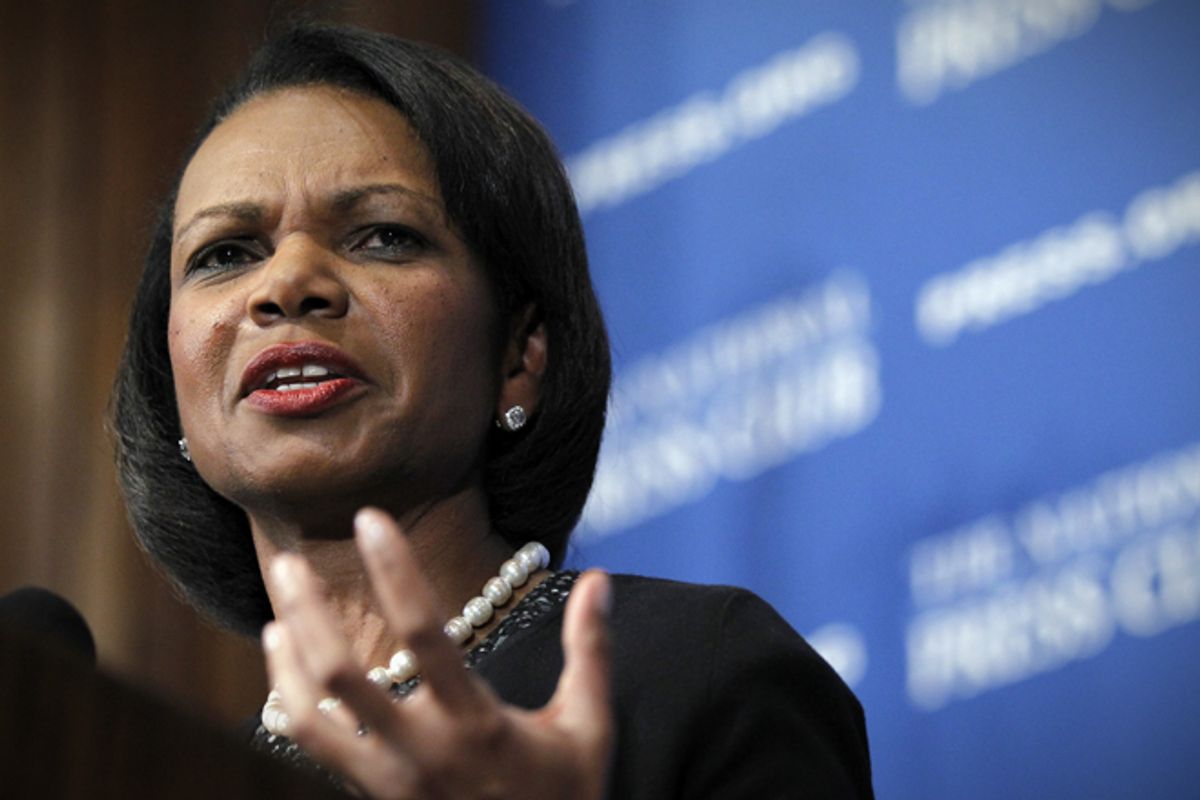TAMPA -- George W. Bush may be completely absent at the Republican National Convention, but at a theater just beyond the security perimeter, it was as if he was still in office today as Condoleezza Rice and former Bush chief of staff Joshua Bolten praised his legacy. The lineup of the forum, meant to "give you a sense of where Republicans stand on issues of foreign aid and national security," as the president of the National Republican Institute said in his opening remarks, suggest just how little Republican foreign policy has changed since 2001, despite the intervention of two unpopular and disastrous wars that have tarnished the neoconservative ideals that defined the Bush era.
Joining Rice and Bolten was Michael Gerson, who, as Bolten said today, "crafted some of the most famous phrases in politics over the past decade." Gerson was a senior policy adviser and speechwriter to Bush and helped sell the war in Iraq as a member of the White House Iraq group. He developed the famous "smoking gun/mushroom cloud" metaphor after American forces turned up none of the weapons of mass destruction they expected to find in Iraq. He also coined the infamous "axis of evil.” He was such a trusted aide of Bush’s that he had an office in the West Wing, which is rare for speechwriters. Gerson left in 2006 in a White House shakeup as Bush’s poll numbers sank, largely on the failure of the war. Gerson is now a columnist for the Washington Post, where he remains an influential conservative voice. Rice's star has only risen since 2008.
Cindy McCain, the wife of hawkish Sen. John McCain, gave the opening remarks, praising Bush’s legitimately admirable legacy on foreign aid before the first panel of Rice and the other Bush alums. The conversation focused exclusively on foreign aid. The second panel, on what Mitt Romney’s foreign policy would look like, featured Sen. Kelly Ayotte along with Romney foreign policy advisers Richard Williamson, Mitchell Reiss and Paula Dobriansky, who also all served in the Bush administration.
After being disappointed by the lack of discussion on anything beyond development in the first panel, the second seemed to offer more hope. But it opened with a lengthy discussion on Bush's record on foreign aid, of which Reiss said, "I don’t think he gets enough credit for it.” The lack of much discussion on topics beyond foreign aid may have to do with the fact that it was sponsored by groups involved in the issue, or it may be an attempt to avoid talking more about Bush's more controversial legacy on issues of war and peace.
When two antiwar protesters interrupted the panel, shouting at Rice that, "The blood of little babies are on your hands,” and Rice flatly repeated a line she had uttered many times in the preceding years during similar incidents about how the wonderful thing about democracy is the right to protest, one might be forgiven for thinking it’s 2005.



Shares